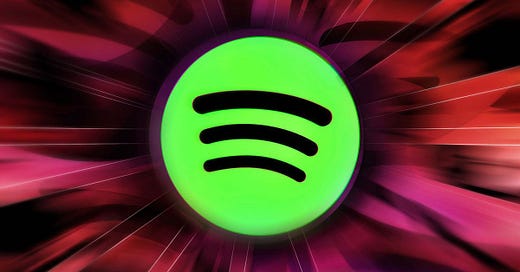Joe Rogan and who we decide to trust
The breakdown of our public sphere on the backs of dysfunctional media systems is changing how and who we trust.
The conversation about Joe Rogan and Spotify is a couple weeks old now, and there a multiple important dimensions to what is still unfolding. Beyond questions about morality, about who and what is silenced and by whom and how, and about the business value of casual racism and sloppy misinformation is a question about trust that’s not getting enough attention. Why do people trust anyone about anything. Why would people trust Rogan? And specifically why would anyone trust him about COVID instead of journalists or scientists? How we come to understand things is connected to how and who we trust, and our failure to understand that connection is driving our failure to communicate on more than just vaccines.
In modern life, our reality is that we mostly learn through others, not directly, and that epistemic pattern means that sources matter, authority and credibility matter. Other fallible, imperfect people, just like us, are part of our chain of understanding the world around us — and always have been. But as society relies on deeper and deeper levels of abstraction and complexity, we are further and further removed from most direct knowledge. And the voices we listen to often come from within a larger institution (or the institution itself) which adds another layer of interpretation, framing, and abstraction to our process. If we don’t trust a specific institution (say the CDC or The New York Times) or if we, as a society, are growing suspicious of institutions in general (say government or media), then all institutional voices no matter how authoritative will struggle to build trusted conversations with people, and singular voices (seemingly independent) like Rogan’s become easier to trust even on topics on which they are far from an authorities. Just throwing easy pablum like “just follow the science” discounts the enormous social power of storytelling — even (or perhaps especially) in the context of complex, technical information tied to existential risk.
(To dig deeper into the how's and why's of learning and trust, I recommend this interview with historian Steve Shapin.)
For those who’ve follow the conversation here for a while, this controversy of trust is a poignant and pertinent exampled of exactly the type of failure of information systems I map out in my book. We live in a state of perpetual information overload that has us begging for shortcuts in our discernment process. That we share fewer and fewer information sources broadly across communities makes shared experiences rare when we look to proximity (in the form of those closest to us or voices we hear most frequently) as our substitute for authority and credibility. When we are scared or unsure, the need for safety becomes an essential part of our discerning process. “Just following the science” as a purely rational exercise becomes impossible (if ever possible even on the most stable days and simplest topics).
News and journalism are often framed as unbiased, rational information experiences. Leaving aside for the moment whether the creation of that content can be unbiased, the consumption of it certainly is not. And we tend to discount that bias constantly in public discourse about everything from public health information about COVID to the future of the economy. Couple this need with the cultural pressure on institutions, and people are desperate for sources to trust. People trust Rogan, a performer, an entertainer, not a journalist, not an scientist, about COVID out of desperation, not careful assessment that he’s the best source of public health information. This is not to say that performers cannot be authorities or experts — many of them are — but our desperate need to trust someone pushing us toward the familiar and the best storytellers is a shortcut that is not serving us. We cannot overlook the role of Spotify's $200m investment in determining what's familiar and who's stories we see, but that our experts need to become better storytellers is undeniable, too. But when we talk about meeting people where they are in political organizing or persuasion conversations, we need to look beyond demographics and culture and seek people out with empathy for where they are emotionally in context.
For the purposes of where we go from here, we undeniably need better systems that help us discern better, judge authority and credibility better, that help us learn and understand how we are learning and from whom. But as storytellers, we also need to speak to the whole person — the rational mind craving information and the scared heart desperate for comfort. Either-or is not going to help us build trust, share information more effectively, build shared understandings that we expand and challenge, but that we expand and challenge together. There is a reason people are turning to and trusting Rogan, and discounting that as madness or misguided without understanding why is both unproductive and unstrategic to getting us moving in the direction of greater community attachment and shared future.




